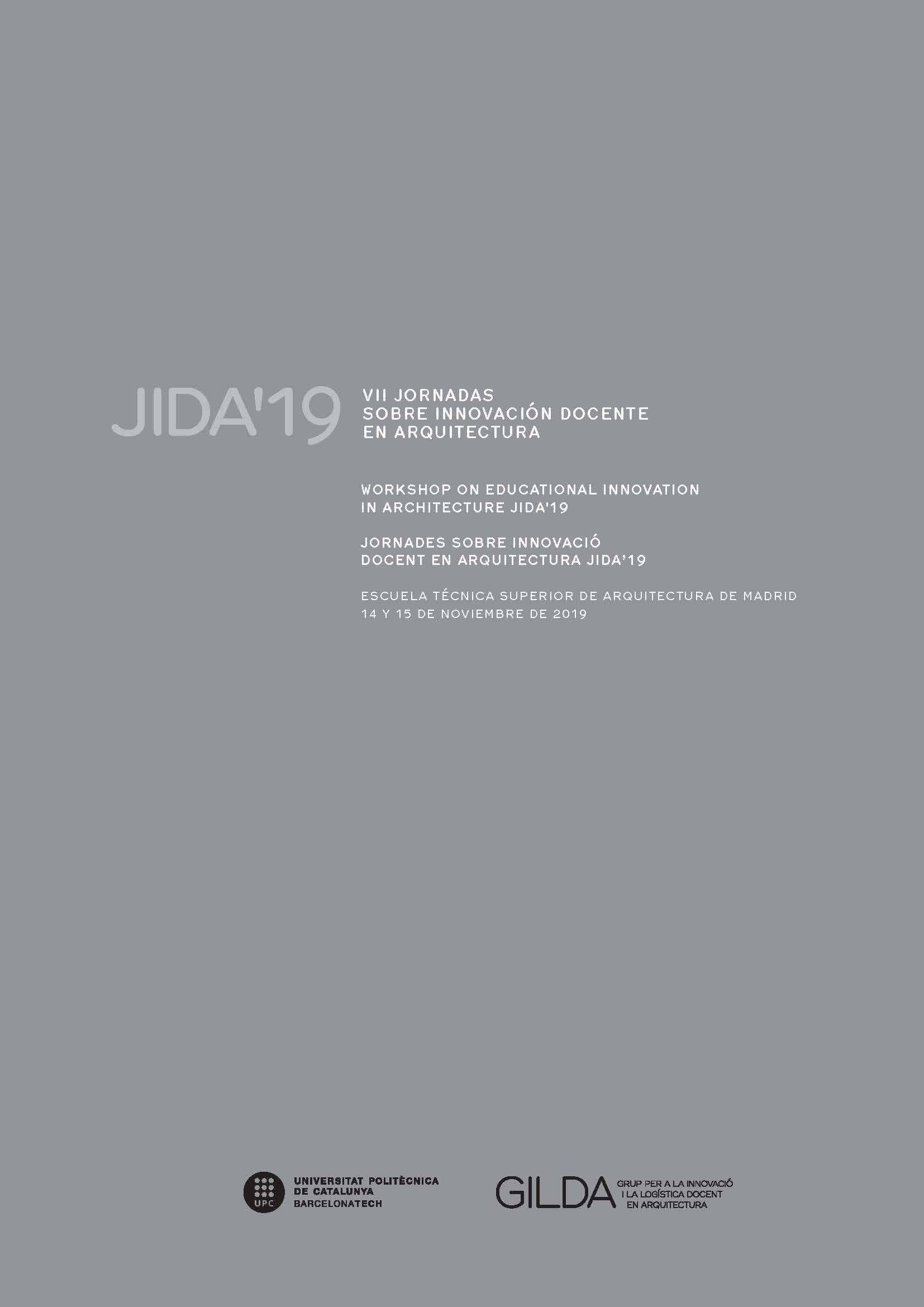The architecture studio beyond Donald Schön´s traditional approach
DOI:
https://doi.org/10.5821/jida.2019.8411Abstract
The architectural education was not theorized until the contributions made by Donald Schön in the 1980s, since then his pedagogical ideas on learning theory and practice have been dominant in the training of professionals. However, the model has suffered severe criticism over the last decade, especially for presenting the student as a passive observer, rather than an active learner. The present proposal investigates learning styles, as a way of understanding the individual characteristics that influence the learning of our students and presents an action research that leads to a didactic where students autonomously travel through the project process. These didactics that incorporate the body (kinesthetic) aimed at students with active and sensing learning style preferences, have been a good gateway to the concepts on the architect training. Also, the tendency that demonstrates the difficulty of the active group on the architecture studio performance has been reversed.
References
ARENTSEN, E. (2012). Aproximación a una didáctica integradora de los estilos de aprendizaje en el taller de arquitectura: diagnóstico y propuesta. Tesis MagÃster en Didáctica Proyectual. Universidad del BÃo-BÃo, Chile. <http://repobib.ubiobio.cl/jspui/handle/123456789/1472> [Consulta: 15 de julio de 2019]
CUFF, D. (1991). “Architectural Practiceâ€. Cambridge, MA: The MIT Press.
DEWEY, J. (1939). “Intelligence in the modern world, John Dewey’s philosophyâ€. USA: Random House.
DUTTON, T.A. (1987). Design and Studio Pedagogy, en Journal of Architectural Education (1984-), Vol. 41, No. 1., Autumn, p. 16-25.
FELDER, R.M. (2002). “Author’s preface“ -June 2002- Reprint of: Felder, R.M., & Silverman, L.K. (1988) Learning and teaching styles, en Engineering education, Engineering Education, 78(7), p. 674-681.
FELDER, R.M. y BRENT, R. (2005). Understanding student differences, en J. Eng. Educ., Vol. 94, No. 1, p. 57-72.
FELDER, RICHARD M. y SILVERMAN, LINDA K. (1988) Learning and Teaching Styles In Engineering Education, en Engineering Education, 78, 7, p. 674 -681.
FELDER, R.M. (1993). Reaching the second tier – Learning and teaching styles in college science education, en Journal of College Science Teaching, 78 (7), p. 674-681.
FELDER, R.M. (1996). Matters of style, en ASEE Prism, 6(4), p. 18-23.
FELDER, R.M. y SOLOMAN, B.A. Index of Learning Styles. <http://www.ncsu.edu/felderpublic/ILSpage.html>. [Consulta: 9 de noviembre de 2018]
KOLB, D.A. (1984). “Experiential Learningâ€, Englewood Cliffs, NJ: Prentice-Hall.
KOLB, D.A. y FRY, R. (1975). “Toward an applied theory of experiential learningâ€, en Cooper, Cary L. (Cary Lynn) Theories of group processes. London; New York: Wiley.
LA TORRE BLETRÃN, A. (2009). “La investigación acciónâ€, en Bisquerra Alzina R. (Coordinador) MetodologÃa de la Investigación Educativa. Madrid: La Muralla.
MEWBURN, I. (2011). Lost in translation: Reconsidering reflective practice and design studio pedagogy, en Art and Humanities in Higher Education, Vol.11, nº 4, p. 363-379.
OSSANDÓN, Y. y CASTILLO P. (2006). Propuesta para el Diseño de Objetos de Aprendizaje, en Revista Facultad de IngenierÃa - Univ. Tarapacá, vol. 14 Nº 1, p. 36-48.
SCHÖN, D. (1992). “La formación de profesionales reflexivosâ€. Barcelona: Paidos Ibérica, S.A.
WEBSTER, H. (2003). Facilitating critically reflective learning: excavating the role of the design tutor in architectural education, en Art, Design & Communication in Higher Education 2, no. 3, October, p. 101-111.
WEBSTER, H. (2008). Architectural Education after Schon: Cracks, blurs, boundaries and beyond, en Journal for Education in the Built Environment, Vol. 3, Issue 2, December, p. 63-74 (12).



















